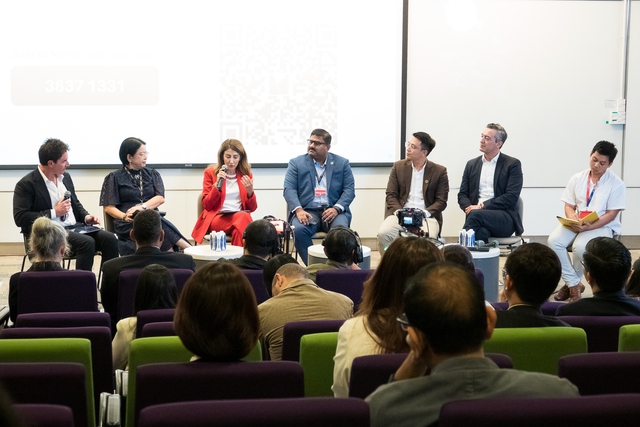
Speakers discuss the role of AI in education
PHOTO: NGOC LONG
The Embassy of Sweden, in collaboration with RMIT University Vietnam, organized the Nobel 2025 Exhibition and Dialogue in Ho Chi Minh City on September 15, to celebrate the 55th anniversary of the establishment of diplomatic relations between Vietnam and Sweden. Within the framework of the event, experts attended a discussion on the role of AI in the future of learning and teaching to analyze and discuss what teachers and learners need to be equipped with in the AI era.
Many challenges
One notable challenge, according to Dr. Pham Chi Thanh, lecturer in electronic engineering and computer systems at RMIT University Vietnam, is that there are many misunderstandings about the role of AI. Having participated in training more than 350,000 teachers and education managers through the AI training project organized by the Ministry of Education and Training for the first time this summer, Mr. Thanh shared that many participants are "deifying" the role of AI in teaching and learning activities.
"Many people think that AI, especially tools like ChatGPT, can take over most of the tasks that teachers have to do, such as preparing lesson plans and materials, teaching, and even testing students. In reality, teachers have to do much more than that, so this misconception simplifies the role of teachers in the classroom, negatively impacting pedagogical activities," Dr. Thanh emphasized.
Specifically, Mr. Thanh shared that there are two groups affected. The first are teachers who are very good at technology and are familiar with using digital tools. They can get caught up in the technical aspects and forget many other important factors such as pedagogical methods, testing or ethical frameworks. The second are teachers who have little experience or lack confidence when using AI tools, worry about being left behind, thereby reducing their motivation to teach and having psychological barriers when approaching AI.
Learners are also negatively impacted if they see AI as a “magic machine” that solves all problems, according to Dr. Santiago Velasquez, acting Senior Program Manager of the MBA and MBA International Business programs at RMIT University Vietnam. This is because students are susceptible to two types of illusions: the “illusion of authorship” and the “illusion of perfection” when using AI.
Explaining the above statement, Mr. Velasquez informed that many students put the AI's answers verbatim into their papers and consider it their own work without realizing that this is plagiarism. That is the "illusion of authorship". On the other hand, simply receiving answers from AI after entering the command and considering yourself to have completed the paper also creates an "illusion of completion", because the process of effort and brainstorming of the learner is completely ignored.
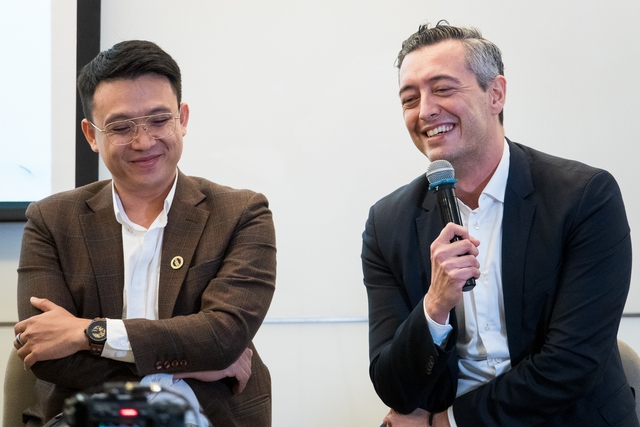
According to Dr. Pham Chi Thanh (left) and Dr. Santiago Velasquez, relying entirely on AI can have a negative impact on the teaching and learning process.
PHOTO: NGOC LONG
"AI has 'gone through' every library in the world , read every available book. Therefore, AI has all the information in the world. But remember that AI has a random element and never answers a question with two identical answers. Not to mention, just write a slightly different command, it will change the answer direction completely. In general, to please you, AI will give any answer," Dr. Velasquez warned.
To prevent learners from completely handing over their learning to AI but still using it as a useful tool, Mr. Velasquez believes that the form of assessment needs to change, in which the whole learning process is considered instead of just the final product. "We should not prohibit learners from using AI to get information, but create conditions for AI answers to become raw materials, helping learners to judge and analyze further," he said.
Meanwhile, Dr. Abdul Rohman, senior lecturer in communications at RMIT University Vietnam, said: "Education with AI should be an education that helps people retain their humanity, in which the presence of teachers is irreplaceable." "Put people at the center instead of machines, create a toolkit so that everyone can use AI safely in learning," Mr. Rohman emphasized.
Businesses prioritize AI
While the education sector is cautiously introducing AI into teaching and assessment, in businesses, the application of AI in all stages is becoming more popular than ever. AI skills, therefore, have also become a new "measure" to evaluate and recruit candidates, according to Dr. Rita Mokbel, President and General Director of Ericsson Vietnam and Myanmar - a telecommunications technology group headquartered in Sweden.
"To work effectively with AI, you need to have critical thinking, not only understanding what type of data you want to use but also knowing how to set the right commands for AI to give you the answers you want. Creative thinking, communication skills and empathy are also extremely important to complement what AI brings," Ms. Mokbel shared, adding that in her unit, every employee is provided with an AI assistant to help speed up work.
Additionally, according to Microsoft's 2024 Job Trends Report, 66% of business leaders said they would not hire a candidate without AI skills, and 71% said they would rather hire a less experienced candidate with AI skills than an experienced candidate who lacks these skills. This is the result of a survey of 31,000 people in 33 countries and territories around the world.
“AI is no longer an option, but has become core to every business’ strategy,” said Ms. Mokbel.
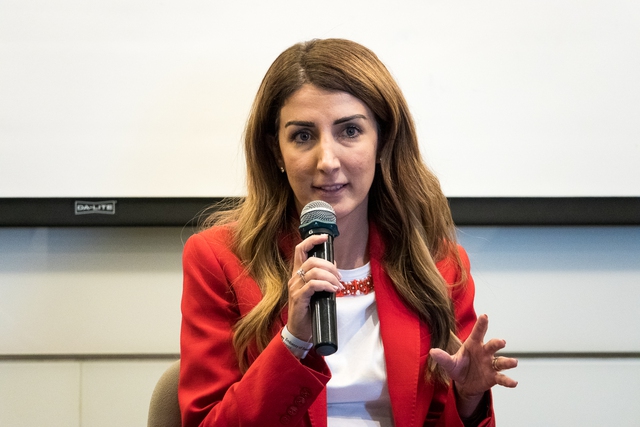
Dr. Rita Mokbel said that candidates need AI skills and AI capabilities that cannot be performed well if they want to catch the "green eye" of employers.
PHOTO: NGOC LONG
That is also the reason why at a company related to food packaging and processing solutions like Tetra Pak (Sweden), AI is also being taken seriously, according to Mr. Sandeep Menon, CFO of Tetra Pak Vietnam. Mr. Menon said that by bringing AI to areas such as processing, packaging, and equipment, the company can reduce labor, warn of errors and predict failures to increase productivity by 10-20%.
“Now, every employee in my company has to go through an AI literacy program. This helps them really understand the advantages and limitations before they start implementing AI in any activities,” Menon said. “Many companies are moving away from the traditional skill-based approach of hiring and moving towards looking at how candidates can handle different situations,” he added.
Comprehensively bringing AI into education
In addition to many training projects for teachers organized by the Ministry of Education and Training, at the local level, the Ho Chi Minh City Digital Transformation Center is also coordinating with the Ho Chi Minh City Department of Education and Training and many related companies and organizations to train basic knowledge about AI and practical applications for more than 10,000 teachers. In addition, universities have also begun to open bachelor's and master's programs in AI and at the same time, high schools have begun to incorporate AI into their educational programs.
These moves are part of the AI education strategy until 2035, according to Ms. Vo Thi Trung Trinh, Director of the Ho Chi Minh City Digital Transformation Center. To realize this goal, Ms. Trinh said that Vietnam also needs to apply an AI competency framework for teachers, upgrade infrastructure, tools, and provide more training programs and support services. Finally, there needs to be guidance on privacy, fairness, and responsibility when using AI.
"Vietnam's national AI strategy has moved from the policy-making stage to practical action, in which education is an important component," Ms. Trinh informed.
Source: https://thanhnien.vn/than-thanh-hoa-ai-trong-giao-duc-gay-tro-ngai-cho-ca-thay-va-tro-185250916165549576.htm




![[Photo] Binh Trieu 1 Bridge has been completed, raised by 1.1m, and will open to traffic at the end of November.](https://vphoto.vietnam.vn/thumb/1200x675/vietnam/resource/IMAGE/2025/10/2/a6549e2a3b5848a1ba76a1ded6141fae)







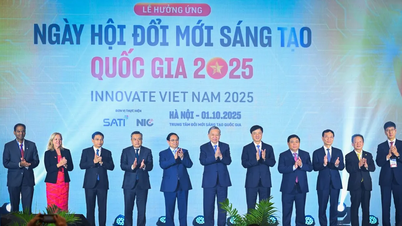







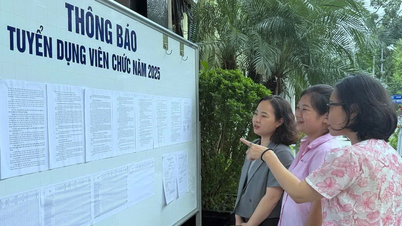

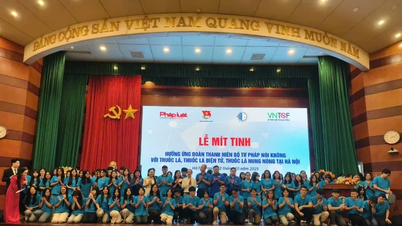













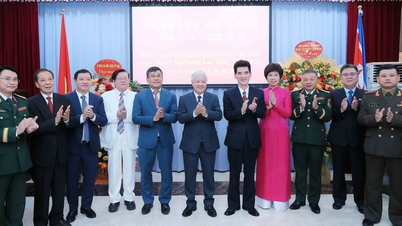













































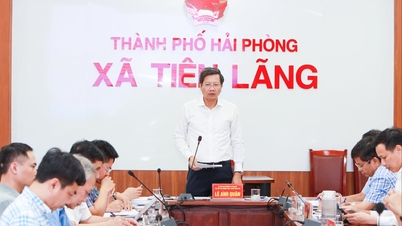
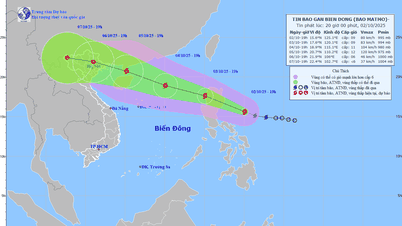


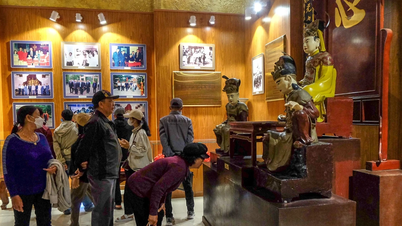

















Comment (0)